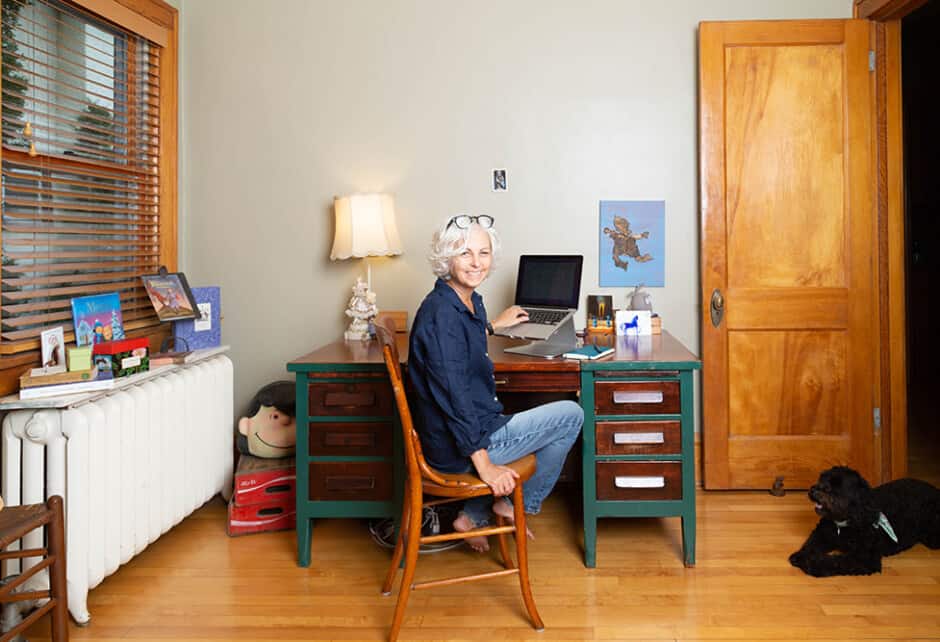
Nine Golden Months—Why We Need To Honor Pregnancy As Sacred
Written by Heng Ou
Photography by Marc Bordons
As a mother of three herself and the author of the 2016 postpartum bible The First Forty Days, Heng Ou knows all about the sanctity of motherhood. Along with her co-authors Amely Greeven and Marisa Belger, Ou took on the pre-conception period in 2020 with Awakening Fertility: The Essential Art of Preparing for Pregnancy. And now the trio is back again, this time with a title devoted to the pregnancy period—Nine Golden Months: The Essential Art of Nurturing the Mother-to-Be. Below, Ou shares an excerpt from the introduction of the stunning new book, which makes an argument for a societal shift that treats pregnancy as sacred.
The thirty-eight-ish weeks of carrying a baby to term is a season of life that contains tremendous, even life-transforming, opportunities. Pregnancy and its zenith—the hours or days of labor and birth—will ask you to tap more strength than you ever knew you had as you face hard decisions, make risk assessments, and navigate monumental physical output. And you may find yourself doing all of this while allowing a vulnerability you may barely have permitted before. It deepens your sensitivity to everything around you, physically and emotionally, and enhances your intuition in almost mind-bending ways. And as many a teary-eyed mama can attest, gestating a child can bring long-stored feelings up to the surface, allowing tensions and fears to fully unravel and release, maybe for the very first time. Pregnancy can be a time of tremendous development for your baby, and great healing for you as well.
And that’s not even touching on how pregnancy can be a spiritual initiation of sorts, introducing you to the creative power of the universe that lives inside your womb, and forever altering your sense of what your badass woman-self can do! Society never sees the superhero under their ordinary garb, and it’s the same with you, clad in your maternity jeans. Most are oblivious to the astonishing force that you are, building a human being from two tiny cells, gearing up to bring another citizen into the world, permanently changing the shape of your family and yourself—all while juggling the demands of your job or meeting every need of your older kids.
So while you may win some admiring comments about your slowly changing silhouette, you likely won’t be congratulated for being born into the fierce and tender, generous and constant, and—from the highest perspective—powerfully enlightening experience of motherhood. Let’s just say, pregnancy’s labyrinth is profound, paradoxical, and one of the most significant rites of passage in your life.
So why are we not shouting this part from the rooftops, or at least conveying it equally as enthusiastically as we do the news on prenatal vitamins and the risks of smoking and drinking, or the latest on how to handle varicose veins and stretch marks?
The answer may partly lie in the way pregnancy and birth have become more of a prognosis, and a business, than a transformative rite. Starting in the twentieth century, the mechanistic model of care for pregnant women took hold. Under this model, largely male dominated at first, medical authorities began to “treat” pregnancy and delivery like many other medical conditions, with diagnoses, interventions, and standardized, clinic-based care.
Swift and efficient, and financially lucrative, this linear model began eclipsing a more holistic approach, in which midwives and other elders in the community helped the natural cycles of prenatal, labor and delivery, and postpartum care run smoothly and a little differently for each mother. And while there’s much to honor about this evolution—it has brought a level of safety to many mothers who might otherwise have been at risk, and offered dedicated medical care to families in need—it has also reframed things. The push toward ever more profitable medical treatments has forced the focus of care to get smaller and smaller, no longer encompassing the whole of the pregnant person’s experience, and now overwhelmingly zeroed in on the baby itself. And the quiet side effect is that sometimes you can feel oddly left out of the process.
If you are pregnant as you read this, you may have experienced some of this linear reality already. As you slide into your scheduled appointment—a straight-backed chair catching you in the clinic’s waiting room—desk-staff quickly offer clipboards and a pen. Insurance cards and paperwork change hands in a flurry. Well-trained nurses track your vitals and chart your physical stats. Bright lights keep your alertness high, and machines you’re not quite familiar with are placed on or near your body, helping your doctor or physician’s assistant make assessments about the progress in there—Baby’s looking good; keep doing what you’re doing. Dietary handouts are stapled and offered. The next appointment is put on the calendar and whoosh, you’re on your way! Typically, it’s been only a brief interruption to your daily programming.
Yet as you are moved through this system, treading its safe but slightly sterile terrain, a small voice inside may be making itself heard: What about me?
You see, the care that a mother-to-be needs during this time exceeds what the average clinical checkup can deliver. Being supported while carrying a baby is not only about eating off a prescribed list, cutting out alcohol, or editing harsh chemicals from her cleaning supplies—though these things matter. It’s so much richer, more layered and textured than this. And it starts by turning inward.
When you allow yourself to sink into the care that expecting mothers need and deserve, you enter a realm beyond the measurable and quantifiable. Below that busy surface is a different kind of space, one where the mother feels safe, supported, and relaxed enough for her stress levels to stay low and for the distractions to subside, and where she can hear her inner knowing enough to trust it. A space where she can press pause on hyperproductivity and performing consistently “on the mark,” and is permitted to feel differently from one day to the next. Where she naps when she needs to and turns off the world when she can—allowing, rather than resisting, her hormones’ shifting rhythms of activity and rest. And where she has someone—or a few someones—who hold a mirror to the tremendous capacity that her body has, and who fully see her during all that pregnancy entails, from the triumphant top-of-the-world occasions to the moments of sleep-wrecking discomfort or doubt.
When a woman is allowed to be in this space, pregnancy becomes so much more than just a means to a (glorious) end—having a child. The pregnancy itself, including whatever kind of birth that she and her baby experience, becomes tremendously meaningful; a season of growing into her deserving power, and maturing into wisdom that forever changes how she embarks on mothering.
This is more important than ever today.
These intense times are forcing us to confront just how little, as a society, we lavish deep and meaningful care on women as we go through the most radically demanding and vulnerable transition of our lives. It’s a fundamental misalignment, and it is at odds with what, from a holistic worldview, is practically a natural law: An expecting mother should never have to feel depleted, alone, or in any way adrift.
For a detailed step-by-step guide on how to honor your pregnancy—from intentional self-care rituals to specific recipes—be sure to scoop up Nine Golden Months: The Essential Art of Nurturing the Mother-to-Be.
Share this story




